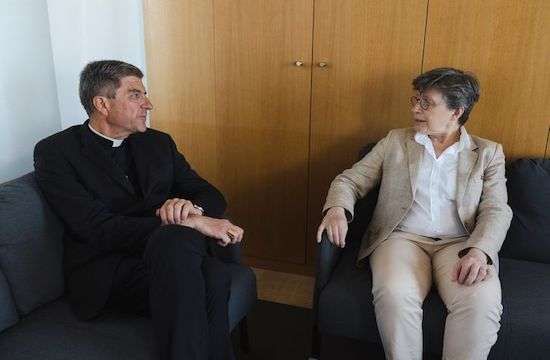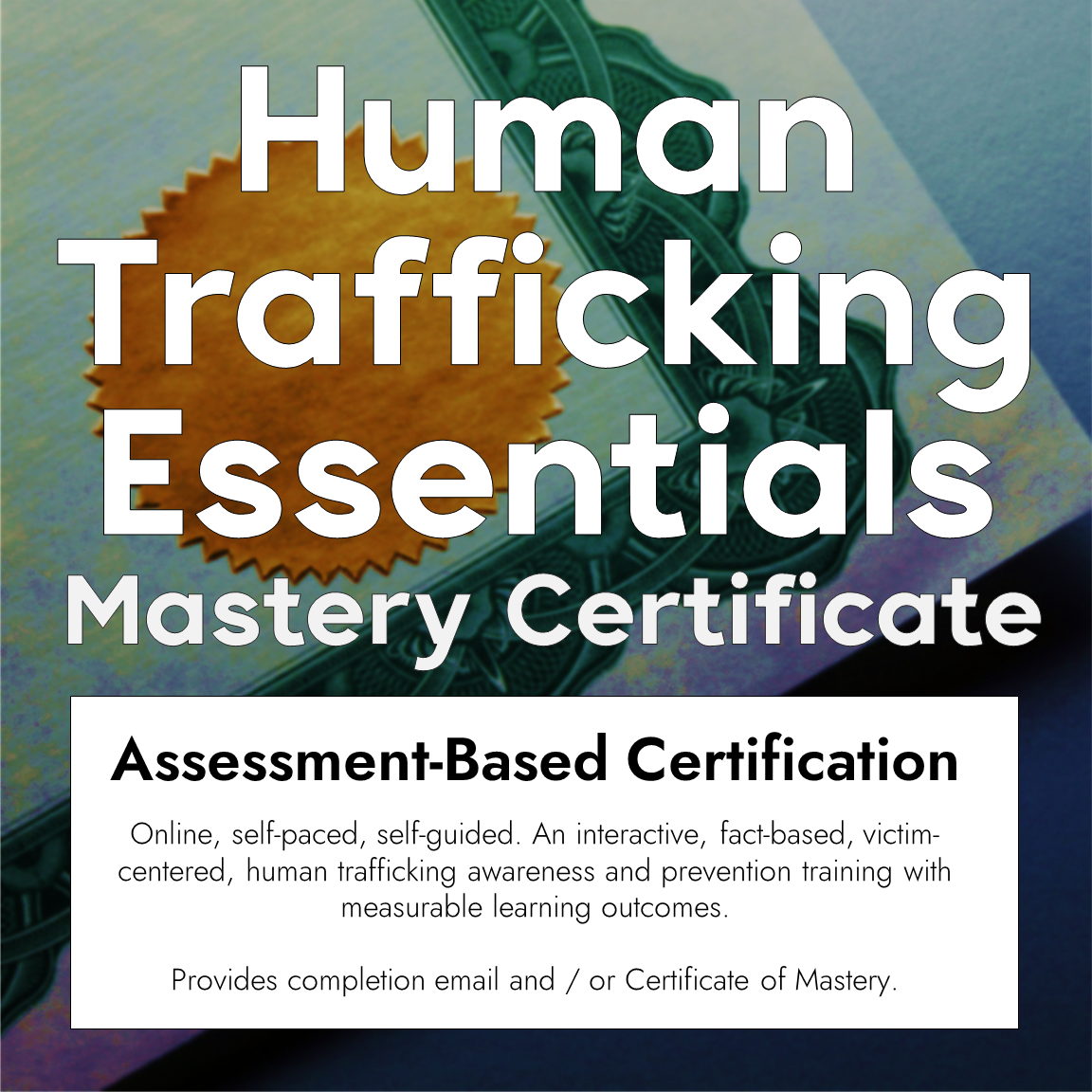Catholic leaders say abuse crisis shows Church must change its culture

La Croix International takes a summer break during the month of August. And during this month we bring you the best and most relevant articles published during the year that you may have missed or would like to read again.
First published on June 14, 2023.
—–
It's more than a year-and-a-half since France's Independent Commission on Sexual Abuse in the Church (CIASE) published a lengthy report that shocked many in the country. Many Catholics – including priests and members of religious orders – are still shocked and angry at what the report revealed.
But since the CIASE report's publication in October 2012, the French Bishops' Conference (CEF) and the Conference of Men and Women Religious of France (CORREF) have studied the findings and taken up many of the commission's suggestions on how to deal with abuse and prevent it from happening in the future.
Archbishop Éric de Moulins-Beaufort, the CEF president, and Dominican Sister Véronique Margron, who is the president of CORREF, agree that the abuse crisis has shown the need for change in the Church's cultural
In this exclusive interview with La Croix‘s Arnaud Bevilacqua and Christophe Henning, they explained how they are trying to help their respective institutions do that.
La Croix: Archbishop, at the CEF plenary assembly last March you spoke of the need for “a change of culture”. Sister Véronique, you also referred to this with CORREF in April. How would you define it?
Éric de Moulins-Beaufort: For a long time now, we've been asserting that all authority is first and foremost a service. Unfortunately, the facts of sexual and spiritual abuse force us to recognize that any position of authority can be perverted into a destructive power. The scale of the problem compels us all to be clear-sighted: those in positions of authority, whether clerics, men or women religious, need to be vigilant in exercising authority according to the spirit of Christ.
Véronique Margron: We were shocked to discover that all these crimes were systemic in nature. The response must therefore be systemic and call for transformation. Of course, this means prevention, following-up with the perpetrators, and attempting reparation for the victims – unfortunately only partial – but it also means questioning governance and ways of life, and changing what needs to be changed, since everything has contributed to sexual assaults. The Church didn't realize, didn't report, didn't see…
Éric de Moulins-Beaufort: What's at stake is our ability to be the Church of Christ. It's a matter of looking at the issue in all dimensions of ecclesial life, because in fact, everything has contributed to the general blindness.
Sexual abuse is just the tip of the iceberg. There is spiritual abuse and the abuse of power. How do you tackle these other abuses, which are harder to pin down?
Éric de Moulins-Beaufort: First of all, by having clear procedures for collecting testimonies and passing them on to the appropriate people. We're not trained to be prosecutors, investigators or examining magistrates. We must therefore avoid playing these roles. At a deeper level, it's a question of overall attitude, because we also need everyone, including the faithful, to have a sense of spiritual freedom, and to cultivate it. Respect for the dignity of every person must be a guiding light for us. Contrary to what some people imagine, the Church is above all a land of freedom. But the more that we have trained people, the more we can hope that there will be, at every level, people capable of pointing out potential aberrations.
Véronique Margron: It's very difficult to combat spiritual abuse, to detect it and, even today, to perceive the weak signals mentioned in the CIASE report. In fact, who is going to be able to investigate with competence and authority? You can receive testimonies and call on communities, but they are autonomous. It's vital to call on others, public institutions, the justice system, civil society…
Éric de Moulins-Beaufort: I'd like to stress that, whatever the difficulties – which are real and which Sister Véronique describes very well – we are truly determined and we are taking action. Work has been done and will continue to be done to ensure that we make progress, in light of the revelation and better understanding of these abuses.
Is the risk increased by the sacralization of priests?
Véronique Margron: These situations are all the more entrenched because they are often placed under the seal of God's will. The sacred dimension adds an extra weight to the situation, compared to other forms of domination. The level of vigilance is inevitably lower when the authority claims to act in the name of faith and for the good of the Church.
We have asked legal specialists to research fundamental, inalienable rights, including for someone in religious life. The fact of taking vows of obedience, chastity and poverty cannot deprive us of rights essential to human dignity: the right to correspondence, freedom of conscience, freedom of political vote…
Éric de Moulins-Beaufort: The faithful must also play a role in the relationship with priests. One of the most interesting contributions of working group no. 8 was that, unfortunately, in the Church, all too often, there is power, but we don't recognize it, because we always say we're “at the service”. The result is that, in fact, power is not looked at lucidly, nor is it regulated. I think it's important to reflect on the whole range of relationships, and to accept that there is authority and that, consequently, this authority is accountable and tempered, so that it acts appropriately.
Among bishops, priests, men and women religious, is everyone ready for this change of culture?
Éric de Moulins-Beaufort: We're working on it, and frankly, things are moving. We're engaged in this process, and the synodal approach launched by the pope is contributing to it. Among bishops, there's less tug-of-war than some might imagine. There are nuances and discussions, but the overall direction is a shared one. At our plenary assemblies, votes are cast by at least a two-thirds majority and, for what was not voted by a two-thirds majority, sometimes only a vote or two was needed.
Today, we are all aligned on the means of action. For example, the importance of training for bishops, in Rome when they take up their duties, but also at the CEF. The big difference that can exist is between those who have met victims and those who haven't yet had the opportunity to do so.
Véronique Margron: It would be pretentious to say that we are sure that everyone is on board. But I've noticed a strong consensus at our general assemblies. Only time will tell if there really are structural changes. Authentic and sincere listening to the victims is creating an irrevocable movement.
How do you respond to those who think this doesn't go far enough?
Éric de Moulins-Beaufort: That we'd like it to go faster and further! We're working on it. This upheaval is irrevocable and irreversible. Humankind is hard to move, but the main thing is to get it moving. It is our responsibility, and it will be that of our successors, to keep this movement going, in particular by allowing ourselves to be affected by the shock of the stories told by those who have been victims. This is our long-term responsibility, and we need everyone's help to achieve it.
Do you now have more effective tools and resources? What do the crises in Toulon and Strasbourg reveal?
Éric de Moulins-Beaufort: We know how to make better use of justice, whether civil or canonical. Above all, we are more lucid. There are certain behaviors that are no longer tolerated or tolerable, and we have to be able to deal with them, confront them and say so. The Holy See itself is aware that there are situations of suffering that cannot be allowed to continue by waiting patiently for the bishop to change, in this instance. We need to intervene earlier, faster and more clearly. In exchange, we need to provide bishops with more support and training.
As far as communities are concerned, should they always be reformed, or should they sometimes be dissolved?
Véronique Margron: It's an illusion to think that we can always reform. However, while we may have well-argued and documented dossiers, we don't have the authority to dissolve. That belongs to a bishop or the Holy See. There are situations where we painfully realize that the tree has grown crookedly from the start and that, in these cases, reform is often in vain. How can we assess whether a community is really reforming?
Our responsibility is to point out when the physical, moral, spiritual or sexual integrity of people seems to be threatened. In a number of cases, despite all we can think and say, we feel powerless.
Since you are used to working together, but your structures move at different speeds, what is the risk of creating friction between them and between you?
Véronique Margron: We don't have the same roles or responsibilities: religious superiors are at the service of their brothers or sisters in their congregation. Bishops are responsible for the people of God in their dioceses. I've always found this easier for religious life. What's more, our offices are linked to mandates, which is also quite different.
Éric de Moulins-Beaufort: The fact that religious life goes further, faster and is more demanding is all very well with me! It is all the better that it can play the role of pushing things forward. I'd be delighted if congregations and religious orders were to do everything they can, because they'll help us and everyone else. Congregations can deeply nourish this culture of vigilance, of respect, of service to freedom, which is what Christ is sending us into. I don't see this as competition at all, but as stimulation and encouragement.
On June 13 you'll be welcoming the members of the post-CIASE working groups to the CEF. What are you going to tell them? Do you still need the help of lay people?
Éric de Moulins-Beaufort: We hope to tell them what we are trying to do, using the example of the joint CEF-CORREF information booklet that we'll be distributing beginning today to as many people as possible (see references). And explain to them how we are going to implement what was voted for at the March Assembly. A team of lay people is being set up with the CEF permanent council to oversee this.
Véronique Margron: We have learned from CIASE that we can't be judge and jury. If we do not work with lay people, whatever our good will and internal skills may be, we cannot achieve our goals because we don't have the necessary distance. It takes a lucid and benevolent exteriority.
How can we avoid being discouraged as scandals continue to come to light?
Véronique Margron: I sometimes feel I've reached the limits of what I can endure. At the same time, there's so much pressure that the question of quitting doesn't even come up. I'm lucky enough to live in a community, which gives me the spiritual and human support I need. What's more, in the midst of all these tragedies, we meet people who are magnificent in their commitment, truth and probity: the victims, but also a whole people committed to the fight against these works of death.
Éric de Moulins-Beaufort: We have to live up to the trust placed in us by the faithful who work alongside us, the vast majority of whom are lay people. They have stayed in the boat, which is a great encouragement, and at the same time a requirement for us. In addition, since 2016, I have met many victims. Their courage, strength, ability to live, and their demands are also a light and a driving force. They compel us and call us to believe that it is worth moving forward.
This “Eyes on Trafficking” story is reprinted from its original online location.
Fair Use Notice: The PBJ Learning Knowledge Vault is dedicated to advancing understanding of various social justice issues, including human trafficking and related topics. Some of the material presented on this website may contain copyrighted material, the use of which has not always been specifically authorized by the copyright owner. We are making such material available in our efforts to promote education and awareness of these important issues. There is no other central database we are aware of, so we put this together for both historical and research purposes. Articles are categorized and tagged for ease of use. We believe that this constitutes a ‘fair use' of any such copyrighted material as provided for in section 107 of the US Copyright Law. In accordance with Title 17 U.S.C. Section 107, the material on this site is distributed without profit to those who have expressed a prior interest in receiving the included information for research and educational purposes. For more information on fair use, please visit: “17 U.S. Code § 107 – Limitations on exclusive rights” on Cornell Law School's Legal Information Institute.

ABOUT PBJ LEARNING
PBJ Learning is a leading provider of online human trafficking training, focusing on awareness and prevention education. Their interactive Human Trafficking Essentials online course is used worldwide to educate professionals and individuals how to recognize human trafficking and how to respond to potential victims. Learn on any web browser (even your mobile phone) at any time.
More stories like this can be found in your PBJ Learning Knowledge Vault.
EYES ON TRAFFICKING
This “Eyes on Trafficking” story is reprinted from its original online location.
ABOUT PBJ LEARNING
PBJ Learning is a leading provider of online human trafficking training, focusing on awareness and prevention education. Their interactive Human Trafficking Essentials online course is used worldwide to educate professionals and individuals how to recognize human trafficking and how to respond to potential victims. Learn on any web browser (even your mobile phone) at any time.
More stories like this can be found in your PBJ Learning Knowledge Vault.

